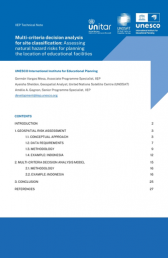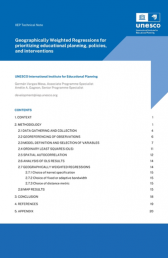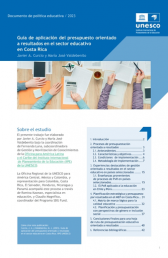
Languages
English, French
Series
Lecture - Discussion Series, 65
Year
1979
Pages
21 p.
Country
About the publication
The USSR's success in educational development suggests that its experience may be helpful to developing nations. The USSR has, since the 1917 revolution, eradicated illiteracy and constructed a universal education system. Among the factors that made this possible are the use of educational planning based on broad development policies, the consideration of social and cultural as well as economic needs in shaping educational policies, mass support for and participation in education, use of the student's mother tongue for instruction, coordination of informal with formal education, provision of financial aid, transportation and boarding schools where necessary, equal education for women, the fusion of vocational with general education, and maintenance of close connections between education and life and between theory and practice. Further, the USSR has based its educational system on the realization that the continuously changing nature of modern industry requires that workers be trained to be flexible and versatile (from ERIC database)









